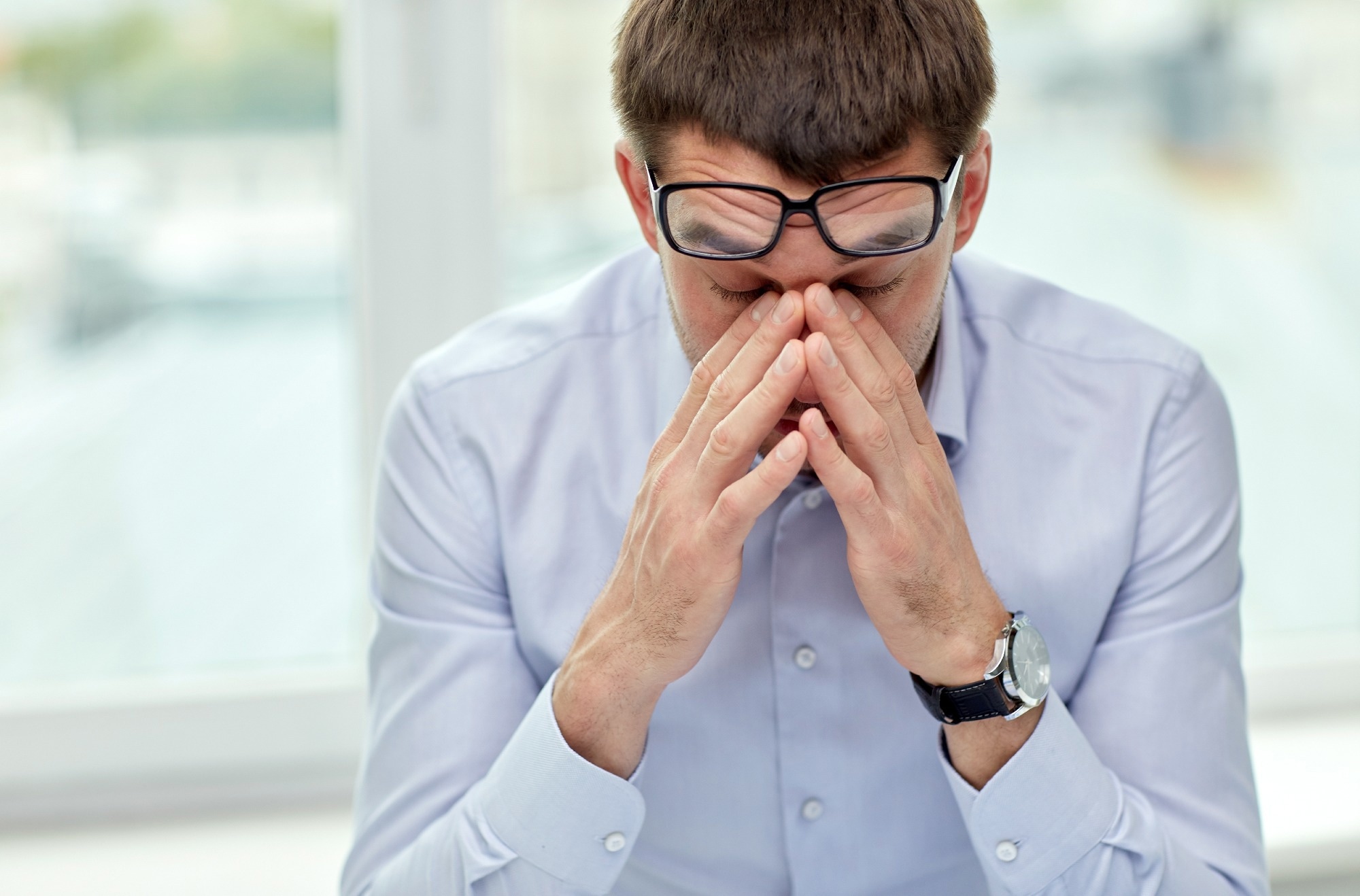Lockdown blues: Study reveals stark impact of COVID-19 on mental health in the UK
In a recent study published in the journal Economic Inquiry, researchers evaluate the effects of the coronavirus disease 2019 (COVID-19) on the mental well-being of United Kingdom residents.
 Study: Locked down in distress: a quasi-experimental estimation of the mental-health fallout from the COVID-19 pandemic. Image Credit: Ground Picture / Shutterstock.com
Study: Locked down in distress: a quasi-experimental estimation of the mental-health fallout from the COVID-19 pandemic. Image Credit: Ground Picture / Shutterstock.com
The impact of COVID-19 lockdowns on mental health
The severe acute respiratory syndrome coronavirus 2 (SARS-CoV-2) outbreak-related lockdowns and social isolation measures have profoundly affected the psychiatric well-being of individuals. SARS-CoV-2 containment policies have changed people's lives, impacted their psychological well-being, and may have increased distress. Thus, it is critical to assess the impact of COVID-19 on mental health to make educated judgments regarding government action and future pandemics.
Understanding the extent of the pandemic's impact on socioeconomically diverse populations is critical for informing policy and mitigating its negative impacts. Previous research has concentrated on documenting the pandemic's population impact and inequities, with limited studies addressing the moderators driving the pandemic's consequences for mental health.
About the study
The researchers analyzed U.K. Household Longitudinal Study (UKHLS) data using difference-in-difference (DiD) techniques to assess the effects of the initial COVID-19 wave on psychiatric well-being. In addition, the team explored moderators or factors that could predict the relative extent of the detrimental impact of COVID-19.
The outcome variable for psychiatric well-being in the UKHLS dataset was the 12-item General Health Questionnaire (GHQ-12) to measure subjective well-being. The dataset included information for 50,000 adults concerning their employment, lifestyle, socio-economic circumstances, family relationships, and psychiatric wellness. These data were obtained between 2009 and 2020, with all individuals re-interviewing each year.
From April 2020 onward, UKHLS participants were asked to complete a monthly web-based survey on socio-demographic variables, GHQ-12, and subjective financial health (SFH). In addition, lagged SFH values were used in a separate model specification to investigate whether economic concerns in the previous pre-pandemic year predicted psychological health impacts during the initial COVID-19 wave.
Variations in psychiatric well-being were determined by the extent of loneliness using lagged and continuous values. The effect of household density on COVID-19-related psychological distress was also investigated, with household density calculated by dividing the number of household residents by the number of bedrooms.
The psychological alterations for individuals interviewed before and after March 23, 2020, the lockdown commencement date in the U.K., were determined and compared with those interviewed before and after the corresponding date in the previous year. May 31, 2020, was selected as the endpoint, as the initial national lockdown measures were significantly reduced thereafter.
Study findings
Higher mental discomfort was observed among U.K. residents during the first COVID-19 wave, with more severe impacts reported among younger individuals, females, migrants, and those from the Black, Asian, and Minority Ethnic (BAME) group, which aligns with previous studies. Furthermore, lonely people, those with financial problems, and people living in congested places had much lower mental health.
Approximately 70% of individuals reported their economic status as comfortable or adequate. The mean values for subjective well-being documented from June 2018 to May 2019 and the corresponding period of the following year were 11 and 12 points, respectively.
The impact on female psychological health was projected to be more than double that of men. Moving from the baseline of absent or infrequent loneliness to the occasional group nearly quadrupled the psychiatric well-being impact to 1.8 from 0.7.
Meanwhile, the transition from occasional to frequent loneliness reflected a higher rise than the mean population impact of 1.8 to 2.7 compared to 0.9. Each additional individual in a bedroom reduced the COVID-19 mental health effect by almost 50%.
An individual reporting absent or rare loneliness without economic worries and residing in averagely crowded housing, which was defined as 0.9 people in each bedroom post-pandemic, would have undergone a less severe mental health decline. In contrast, an individual experiencing financial hardship and loneliness in overcrowded houses would have experienced significantly worse psychiatric health degradation than the average population impact at 3.4 compared to 0.9 respectively.
The GHQ-12 findings indicated that the first COVID-19 wave resulted in a 0.9-point increase in psychological distress. Compared to the same period the previous year, the mean estimated health loss between March 23, 2020, and May 31, 2020, among U.K. residents equated to 50-66% of the predicted effect of unemployment on psychiatric well-being. This significantly exceeded the influence of other negative health correlates, such as widowhood and divorce.
Conclusions
Overall, the study findings highlighted the impact of COVID-19 on the psychiatric well-being of U.K. residents, particularly those who are financially stressed, have a high household density, or are lonely. Thus, individuals who feel most in control of their money and are least likely to be lonely are more likely to have the financial means and social support required to deal with the obstacles posed by COVID-19.
Increased psychological anguish may be caused by crowding stress and lockdown constraints. Future studies should assess the extent of COVID-19 recovery and long-term psychiatric consequences, including behavioral changes produced by living with the disease permanently.
- Anaya, L., Howley, P., Waqas, M., & Yalonetzky, G. (2023). Locked down in distress: a quasi-experimental estimation of the mental-health fallout from the COVID-19 pandemic. Economic Inquiry; 1-18. doi:10.1111/ecin.13181
Posted in: Men's Health News | Medical Research News | Medical Condition News | Women's Health News
Tags: Coronavirus, Coronavirus Disease COVID-19, Mental Health, Pandemic, Research, Respiratory, SARS, SARS-CoV-2, Severe Acute Respiratory, Severe Acute Respiratory Syndrome, Stress, Syndrome

Written by
Pooja Toshniwal Paharia
Dr. based clinical-radiological diagnosis and management of oral lesions and conditions and associated maxillofacial disorders.